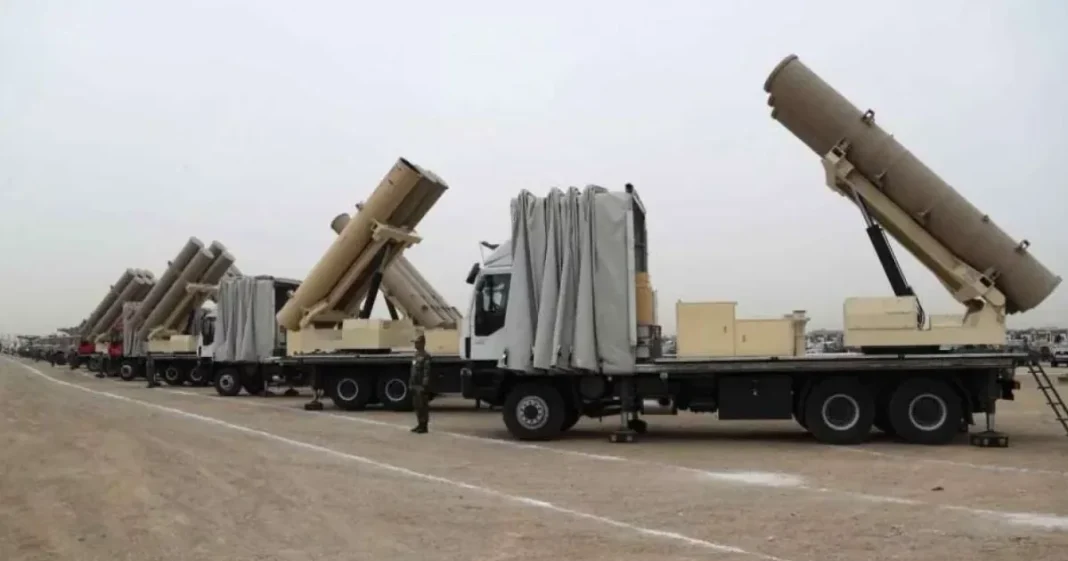Iran is reportedly preparing to send Russia launchers for the Fath-360 short-range ballistic missiles that Tehran allegedly supplied to Moscow last year for use in Ukraine, according to two Western security officials and a regional official speaking anonymously.
The delivery of these launchers would bolster Russia’s ongoing offensive in Ukraine and further solidify the deepening security alliance between the two nations.
Analysts note that the Fath-360, with a range of 75 miles (120 km), would provide Russian forces with a new weapon to target Ukrainian frontline troops, nearby military installations, and population centers close to the Russian border.
Last September, the U.S. stated that Iran had delivered the missiles to Russia via nine Russian-flagged ships, which were subsequently sanctioned.
However, sources indicated at the time that the launchers were not part of that shipment.
The Western security officials and the regional official now indicate that the transfer of the Fath-360 launchers is imminent, though they declined to elaborate on the reasons why the launchers were not included in the initial delivery.
Requests for comment from Russia’s defense ministry and Iran’s mission to the United Nations went unanswered.
The U.S. National Security Council directed inquiries to the State Department, which also did not immediately respond.
The CIA declined to comment.
Both Russia and Iran have previously denied supplying weapons for Russia’s full-scale invasion of Ukraine, which began in February 2022.
However, U.S., Ukrainian, and European officials maintain that Iran has provided Russia with thousands of drones and artillery shells.
U.S. Army General Christopher Cavoli, commander of U.S. Central Command, stated last month that Iran had provided Russia with over 400 short-range ballistic missiles, seemingly referencing the Fath-360.
There have been no public reports of other types of Iranian short-range ballistic missiles being transferred to Moscow or of Russian forces deploying the Fath-360.
The potential deployment of these missiles by Russia could complicate efforts by U.S. President Donald Trump to broker a ceasefire and peace negotiations between Ukraine and Russia, as well as separate talks aimed at curbing Iran’s nuclear program.
The regional official suggested that the indirect U.S.-Iran nuclear talks mediated by Oman are among the reasons for the delayed delivery of the launchers.
While these talks have faced difficulties, Iran announced on Friday an agreement to hold a fourth round in Oman on Sunday.



